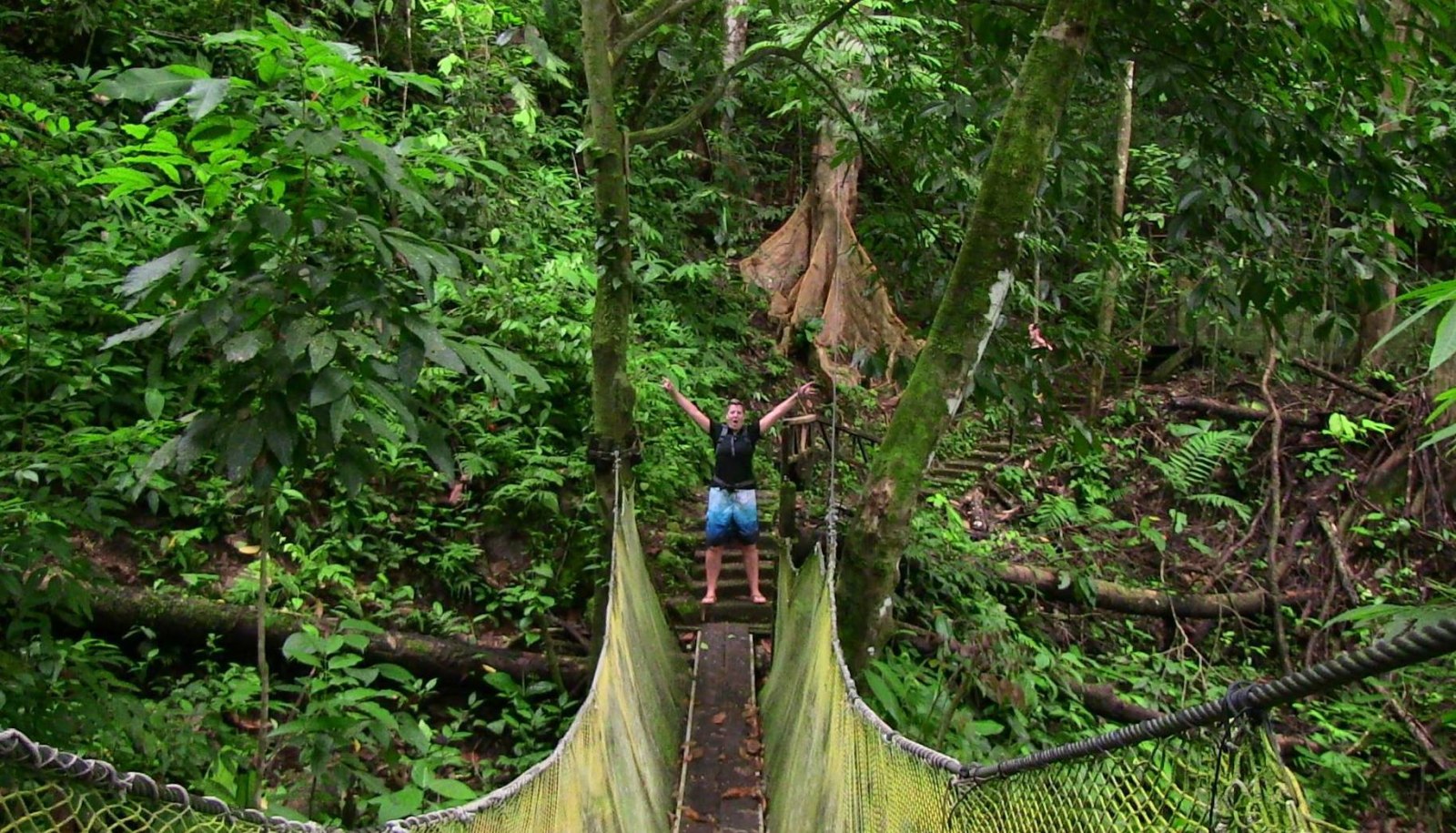You’d like to move abroad but don’t want to give up the perpetual habit of eating and maintaing a shelter? No problem! With some planning, and loads of patience, you can have it all. The five most common ways to earn a living in Costa Rica (CR) are:
- Telecommute
- Independent Consultant
- Property Management/ Real Estate
- Teach English
- Tourism Jobs (i.e. run a hotel, teach surf lessons, open a niche group tour business, etc.)
Below is an excerpt from Becoming an Expat: Costa Rica
TELECOMMUTE
An increasing number of companies recognize the win-win with telecommuting. They can lower overhead with utilities and real estate costs, and increase employee morale and productivity by allowing them to choose the environment they thrive in.
If your employer doesn’t currently use telecommuters, don’t worry, it doesn’t mean they won’t allow it. You must be savvy, and take care in how you present the offer. I recommend you read The Work From Home Handbook by Diana Fitzpatrick and Stephen Fishman before you pitch to your boss. The book will help polish your pitch to speak their language and address their fears or concerns before they even realize they had any.
If you don’t have a job or your employer has a closed door to the option of telecommuting, then it may be time to look in another direction.
What do you have experienced in? What can you bring to the table? Who would benefit from your skills? If you’ve worked in sales, how can you reshape yourself as an international asset?
INDEPENDENT CONSULTANT
If you have worked during your lifetime then you have experience in something. Think about what you’re good at and see if you can pull together a market you can help through consultations.
There are a variety of businesses in Costa Rica with new business owners in every sector. These new owners need help with a variety of niches: marketing, social media, customer service practices, multi-media, international accounting, taxes, productivity, import/export, etc.
PROPERTY MANAGEMENT/ REAL ESTATE
With more and more expats looking for their retirement haven or young professionals looking for their slice of the pie, real estate has opened up dramatically in Costa Rica over the last 25 years. There was a cooling period just before the US recession from which CR is just starting to emerge out of. With the wealthiest and largest group of people entering their retirement years, this market is expected to boom.
The licensure does not work the same in CR as it does in the US. Since the CR government doesn’t regulate this market, no licensure is required to be a real estate agent. This makes it easier to jump into the market, but beware! I strongly believe that you should perform your due diligence and research your field the same way as if you were studying for a licensure exam. Do not expect to be signed as an exclusive buyer’s or seller’s agent. That’s not how it typically works down here. Instead, it’s a free for all. As many agents as the client desires can work on selling the same property or work with the same buyers. The only realtor that gets paid for his/her time is the one that closes the deal.
It is also strongly advised to have specialized training in Costa Rican Real Estate Law before you dub yourself an agent. In addition, every real estate transaction needs to be processed through an attorney so make sure you have an excellent bilingual lawyer to take your clients to.
Property management is also a strong market. Many Costa Ricans and expats have part time homes in CR. These homes need to be watched, maintained, and rented out to supplement income. With the humidity in Costa Rica, a house left unkept can literally rot. Basic spanish skills are a must in order to communicate with plumbers, electricians, and other service personnel that you will be required to hire to maintain homes.
TEACH ENGLISH
You can easily earn your TESOL or TEFL certificate online or in the classroom making you eligible to apply for teaching jobs around the world. Most jobs require that you are a native English speaker, have a 120 credit hour course in either TESOL or TEFL, and some require a Bachelor’s degree in any subject. In Costa Rica, most TESOL/TEFL jobs I’ve seen advertised are in and around the San José region.
If you are hoping to live coastal and do not see a teaching opportunity through an agency, than you could tutor privately, but it can be difficult to secure a long term paying job. It is possible to specialize in “young learner” or “business English” adding marketability and a guarantee that you teach the target audience you prefer.
I received my TESOL certificate through International TEFL and TESOL Training. I chose the 120 unit course and completed it online with my spouse. They allowed us to turn in one homework per unit since we would be completing it together. Each assignment we turned in was reviewed by our tutor, Earl. If any changes needed to be made, Earl sent it back with remarks. I have no complaints and would recommend them:
TOURISM JOBS
Tourism is a multi-billion dollar industry. As mentioned before, the baby boomers are just beginning to enter into their retirement as the most wealthy group the world has ever seen. What do they all have in common? They all want to incorporate travel into their retirement.
Group travel has always had a healthy market and is seeing large increases in demand. What this means is that you could hop onto an established tour group as a tour director after you earn your certificate through the International Guide Academy: www.bepaidtotravel.com).
Or if you’d rather guide than direct, become a specialized guide for a niche group: LGBT, Food, Wine, Coffee, Grandparent, or Children tours to name a few. You can earn guide certification through the National Tour Association: www.ntaonline.com
If you are a more “behind the scenes” kind of person and have an artistic eye, you can secure work designing those flashy tourism brochures and website content.
WORK VISAS
It is no small task to obtain a work visa in Costa Rica. You first need to secure an employer that will sponsor and pioneer the process to demonstrate that you are filling a position that a Tico does not have the technical expertise to fill. Common work visa fields include: health care, IT, biotech, and international business.
JOBS “OFF THE BOOKS”
Under the table jobs are more often sought out by younger folks without kids. This book does not endorse working illegally, it simply acknowledges that it occurs. Under the table jobs often include: restaurant work, some bi-lingual tourism jobs (often owned by expats), flier distributer, sales, marketing, etc.
Do not expect to get paid much by working under the table. The minimum wage for legal workers in Costa Rica for an eight hour day is as follows:
Non-Skilled Worker: $16.39
Semi-Skilled Worker: $17.85
Skilled Worker: $18.19
Specialized Workers: $21.80
http://www.costaricalaw.com/Labor-Law/costa-rica-minimum-wage-scale-for-2013.html







Comentarios